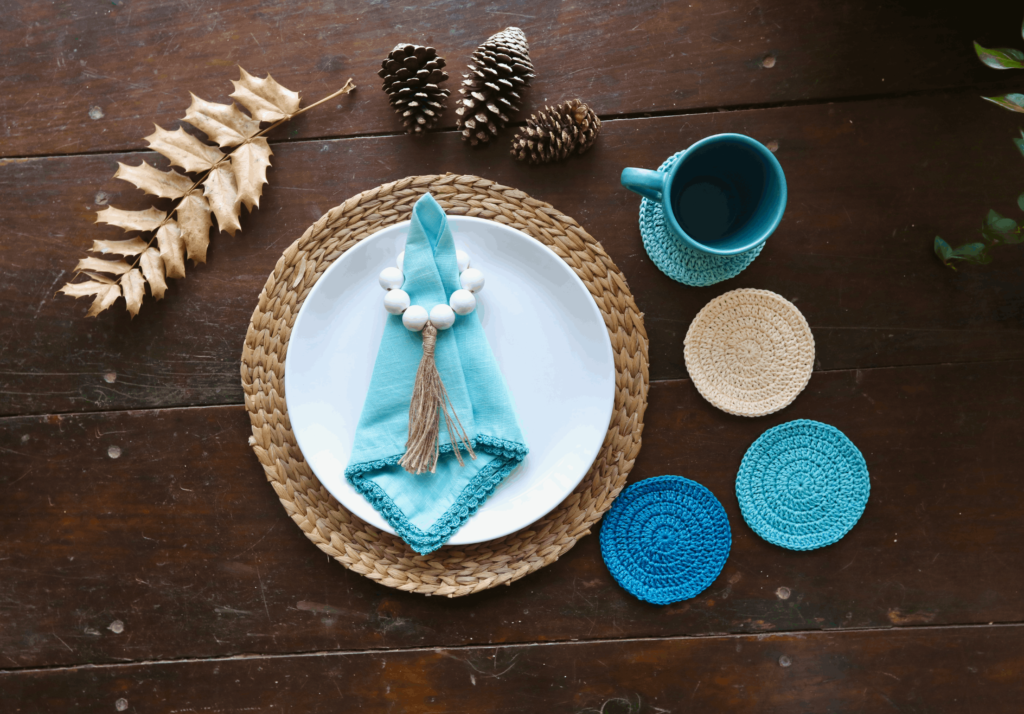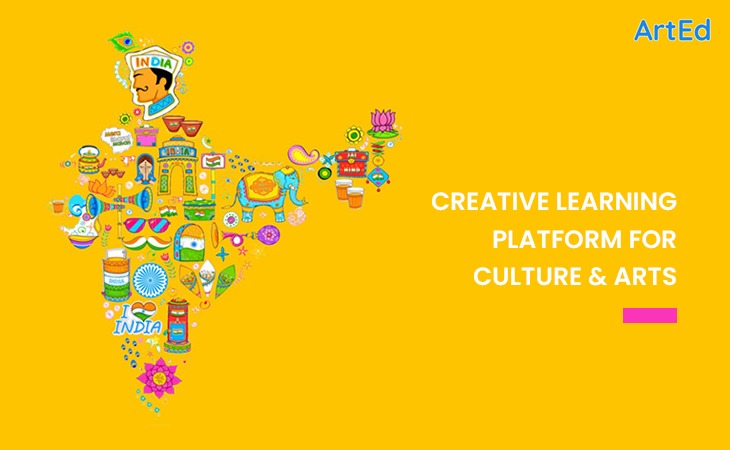Suhas and Sunita Ramegowda, the founders of The Good Gift and The Indian Yards Foundation, have been working with rural communities in the Nilgiris to create gifts that are conscious, as well as convenient. Their range of products include accessories, tableware, aprons and a special focus on fabric dolls upcycled from pre-consumer textile waste. All their products come packaged in a 100% biodegradable gift box, and are available for delivery all around India.
Follow our conversation with Suhas Ramegowda, the co-founder of The Good Gift as he shares his entrepreneurial journey and his learnings.
Inspiration to create change - how it all began
Before starting The Indian Yards Foundation and The Good Gift, Suhas Ramegowda and his wife Sunita lived in Bengaluru, working in the corporate sector. Feeling like there was something more out there for them, they wound up their 13 years of corporate career to live in the Nilgiris mountains – 8000 feet above sea level, and completely off the grid.
The idea was to live off the land – and that’s what they did. Along with growing their own food, building their own home, harvesting water from mountain streams, and using solar panels to harness electricity, Suhas and Sunita also integrated themselves into the fabric of their community, connecting and bonding with the people around them.
But while Suhas and his family were living contentedly, the people around them were not. Watching this unfold in front of them, it was impossible to ignore that the women were the most vulnerable. Lacking any profitable skills, while also being left to take care of their children, the elderly and their households, the women were left to fend entirely for themselves. Neither Sunita nor Suhas came from families who were in the business or development sector, but they were resourceful. Sunita was a crafter (which she took up as a pastime), and had the rare ability to learn and transfer these skills to other people efficiently in a short span of time. Seeing that crafting skills came naturally to most of these women, the couple decided to build a solution that could help the locals out. This solution included teaching them to craft, and sell the products they make.
Originally, the idea was to aid just the 5 or 6 families that they were interacting with on a daily basis. The goal was to come up with a small solution – making crafted items and selling them so that these women could earn a bit more money, and foster skills that will be useful to them. Never did they think that their solution would turn into a whole enterprise – especially one that has the potential to solve the problems of thousands of families in the Nilgiris.
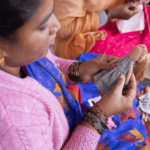
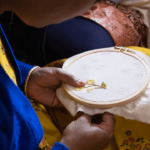
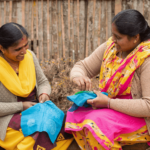
Getting to know their audience
With the aim to create livelihoods and wealth generation for the indigenous communities, Suhas and Sunita started their craft enterprise. However, a few years after starting The Good Gift, they learned that to build an enterprise, they couldn’t just make any product to sell. They had to identify a gap in the market and come up with a solution that adds value to the consumer’s life, and is affordable. They realized that this was a misstep that a lot of craft enterprises took – not taking into account the consumer’s side of the story.
After spending 3 to 4 months in 2022 doing a market study to help identify a gap in the market, they found that one of the major problems a lot of people faced was with gifting. They identified their audience as people living in urban cities – people who were purpose-driven, well-educated and well-traveled, and were conscious about their buying choices. Suhas and Sunita recalibrated their solution to fulfill the needs of such consumers by creating hand-made, eco-friendly, ethically sourced products that are appropriate to gift for any occasion.
The Good Gift’s good gifts
The Good Gift was launched in April of 2023. A variety of products, including hand-crocheted necklaces, paintings by the indigenous Kurumba community, table napkins and napkin rings, coasters, aprons, and more were launched, all ranging between a price of 600 and 2,500 rupees. All the products come in biodegradable packaging and don’t use any plastic-based materials at all. Each product comes with a card, which has a picture of the artisan that made the product on it, and their story, which connects the consumer directly to the artisan.
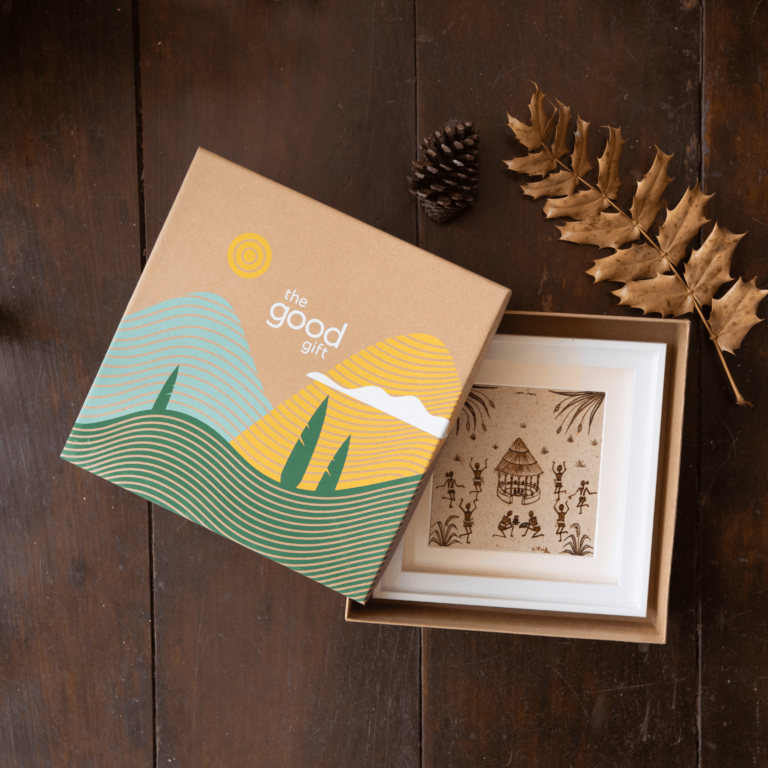
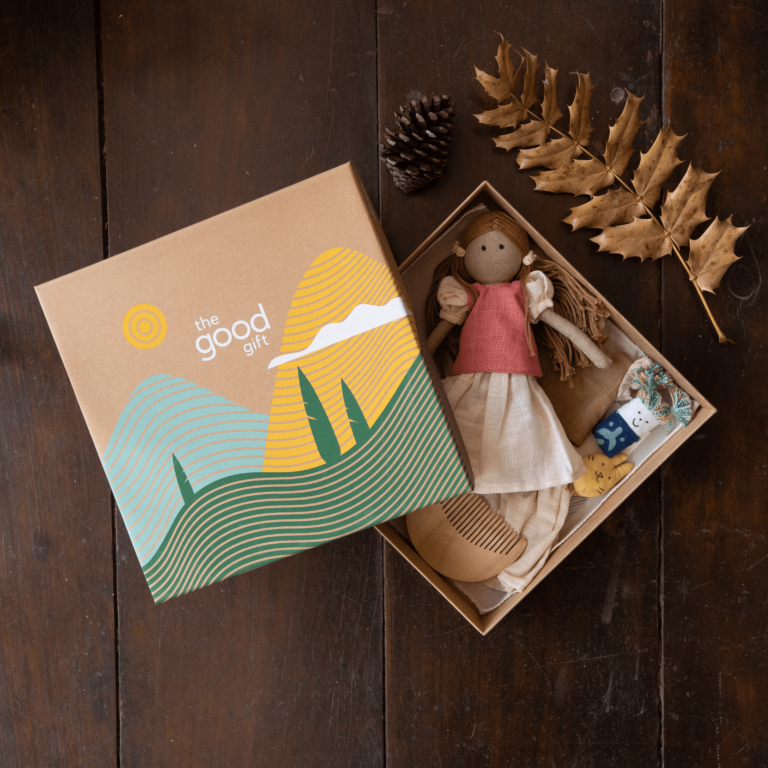
In recent months, they have focused their efforts on fabric dolls and have deepened their range in this category. It has since become one of their bestselling products. Made of upcycled materials, the doll comes with various other objects that simulate a functional play for a child. For instance, a DIY face or a set that comes with a change of clothes or a set that comes with an entire bed ensemble. This has enhanced their focus to provide conscious gifting choices to parents and children alike. Gifts that are good for the children, good for the artisan, and good for the planet.
Although the marketing of their products happens mainly through social media and online marketplaces, they have found that products sell better offline. Their range can be found in popular retail outlets such as Reliance (at NMACC), Go Native, Paperboat Collective, See Saw Places, The Amethyst Room at Chamiers, Chintz Boutique, Ladu (by Tapri), etc in cities such as Mumbai, Bangalore, Goa, Hyderabad, Chennai, Puducherry, Ooty and Coonoor.
Overcoming the challenges
One challenge that they faced along the way was finding the right people for the right jobs. Because they lived so far away from centers of commerce and development, it was difficult to find people who could work management jobs, like marketing agents, accountants, and finance managers. So all the administrative work ended up falling on Suhas and Sunita’s shoulders – which was difficult, given that neither of them had any prior entrepreneurial experience.
However, they did learn to outsource a few jobs to the local community. Instead of hiring people from outside to fill jobs that Suhas and Sunita thought the locals couldn’t, they learned that many jobs, like trainers and supervisors, could be filled by people in the community, which created more jobs.
One challenge they continue to face is with shipping. Their current system includes the customer paying an additional cost for shipping, which they feel is a small price to pay compared to the impact they create when they buy products from The Good Gift. However, partnering with Blue Dart and DHL shipping has helped them deliver their products on time, which is important to their consumers.
Learnings of a first-time entrepreneur
Suhas strongly believes that, as a society, we need to shed more light on, and pay more attention to the rural communities in India, and the inequality of the wealth distribution in the country.
He believes that one of the ways to even wealth distribution in India is for social enterprises to fulfill the needs of urban cities by producing their products in rural areas.
He believes that, to foster an ecosystem that encourages cultural enterprises in India, the sharing of knowledge is essential. When building his company, he was forced to learn lessons through trial and error, but if another company is following the same path that he did, the opportunity to learn from one another would be infinitely helpful, as it would waste fewer resources, and allow the company to make an even bigger impact.
Collaboration is another key aspect of this. Organizations with similar values and products could merge, and become suppliers to one another, which would exponentially increase the impact they create. While aiding 5,000 families is The Good Gift’s current goal, collaborating with larger enterprises (such as Fabindia, Mothercare, Ikea, etc.) could potentially expand the impact to all 83,000 households in the Nilgiris, and save a lot of money.
Another strong belief Suhas has is that successful entrepreneurs should document their journeys. It’s impossible for one enterprise to solve a problem faced across regions. But by recording the knowledge gathered from an enterprise journey in one region, it may be possible to inspire and enable others in different regions, which is one of his goals.
Plans for the future
Currently, The Good Gift works with 53 product producers, and are aiming to scale this number to 500 in the next 3 to 4 years. They are working on building relationships with different retail partners so they can be physically available to potential customers all over India.
They believe that apart from curated retail chains and experience outlets, focusing their efforts towards the travel and hospitality industry will help them generate more demand to fuel their impact aspirations.
